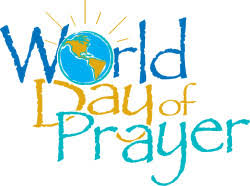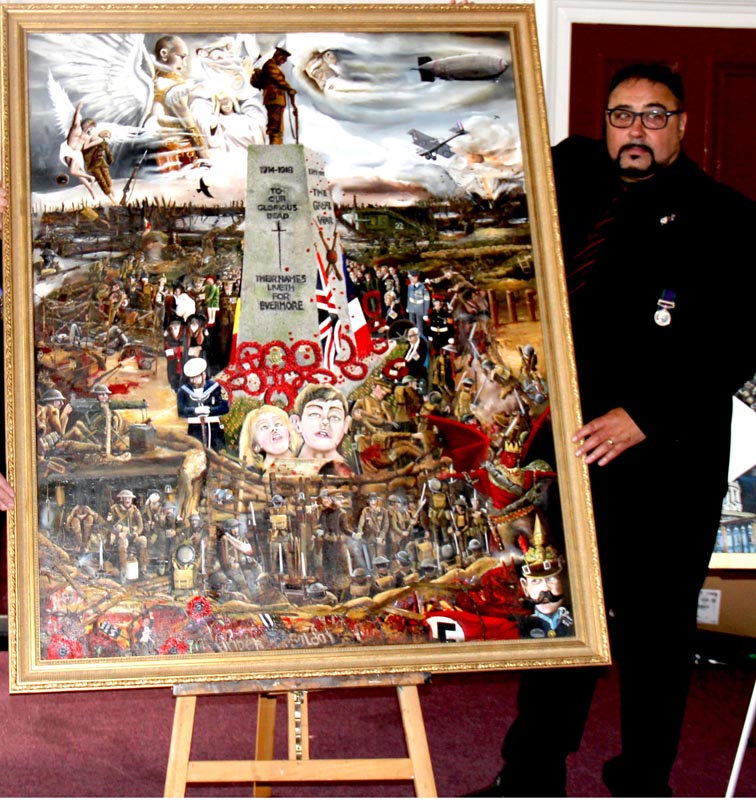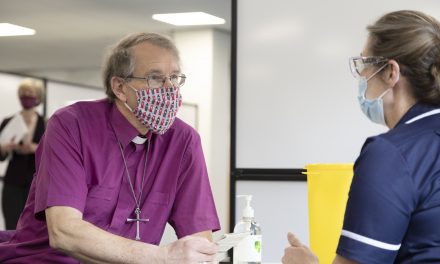Churches across the Church of England’s Diocese of Durham are fighting to end slavery and trafficking across the North East by raising public awareness.
Throughout October, churches in Stockton will be placing 30 ‘End Slavery Now’ banners in prominent places across the community. These will move from town to town, across the Diocese, challenging the practice and giving a helpline number for those trapped, or those who might have spotted someone who is at risk.
The Revd Canon David Tomlinson who campaigned to stop ‘Steven’ a victim of modern-day slavery being deported said: “Even though most people think that slavery only exists overseas, modern slavery in the UK is thriving. The British Government estimates that tens of thousands of people are in modern slavery in the UK today.
“Most people are trafficked into the UK from overseas, but there is also a significant number of British nationals in slavery. The most common countries of origin are Albania, Vietnam, Nigeria, Romania and Poland.
“Most commonly people are trafficked into forced labour in industries such as agriculture, construction, hospitality, manufacturing and car washes. Many women and girls are trafficked for sexual exploitation.
Many people, again mostly women and girls, also end up in domestic slavery. Others, particularly children, are forced into crime such as cannabis production, petty theft or begging.
“Typically, a person coming from a situation of poverty and lack of opportunity gets an offer of an apparently good job in the UK. Often the victim has to take a loan from an agent to pay for the recruitment fees and for the journey. When the person arrives in Britain, the job and the conditions they were promised are completely different.
“Their passport is taken away, and they’re told they need to pay off the debt before they can leave. Violence or threats are common practice, both against the victim as well as their family back home.
The Revd Gemma Sampson, Champion of the Diocesan response to Modern-Day Slavery said: “We believe that the tools to end modern slavery already exist within the local community and that the Church, which is present in all communities and at the heart of many, has a primary responsibility in leading these efforts.
“The Diocese of Durham, supported by The Clewer Initiative, is working to enable churches to develop strategies to detect modern slavery in their communities and help provide victim support and care. It involves working with the Church locally, identifying resources that can be utilised, developing partnerships with others, and creating a wider network of advocates seeking to end modern slavery together.”
The initiative forms part of the Church of England’s approach to eradicating modern slavery and is funded by the Clewer Sisters (an Anglican order of Augustinian nuns founded in 1852 to help marginalised women).










